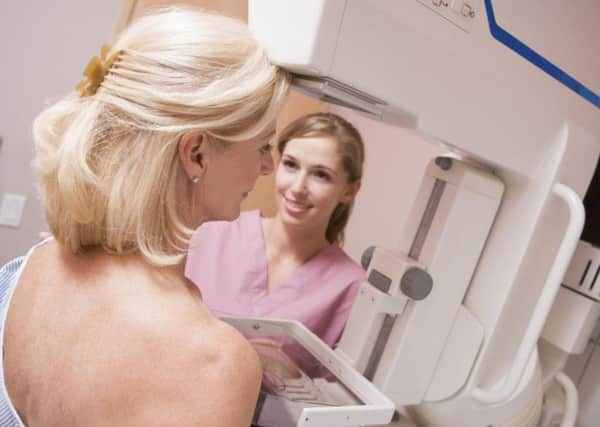Breast cancer drug trial ‘success’


Experts are now calling for anastrozole to be used as a preventative treatment after the trial found taking the drug for five years reduced the risk of post-menopausal women who were especially prone to breast cancer by 53 per cent.
The research, funded by Cancer Research UK and led by Queen Mary University of London, involved almost 4,000 women at 57 hospitals across the UK.
Advertisement
Hide AdAdvertisement
Hide AdThat included a total of 159 patients at four Yorkshire hospitals – St James’s in Leeds, Airedale General Hospital in Steeton, near Keighley, Weston Park Hospital in Sheffield and Castle Hill Hospital in Hull.
Results from the five-year trial showed 40 women in the anastrozole group developed breast cancer compared to 85 women who were taking a placebo.
Researchers said the findings could lead to a new option for preventing breast cancer as the medicine was more effective than tamoxifen, another hormone-suppressing drug already given as a preventative measure, and had fewer side effects.
Professor Jack Cuzick, lead researcher and head of Queen Mary University of London’s Centre for Cancer Prevention, said: “This research is an exciting development in breast cancer prevention. We now know anastrozole should be the drug of choice when it comes to reducing the risk of breast cancer in postmenopausal women with a family history or other risk factors for the disease.
Advertisement
Hide AdAdvertisement
Hide Ad“This class of drugs is more effective than previous drugs such as tamoxifen and crucially, it has fewer side effects.
“Unpleasant side effects such as acute aches and pains have often been associated with oestrogen depriving drugs. However, in this study, the reported side effects were only slightly higher than in the placebo arm. This means most symptoms were not drug related, and the concern about side effects for this type of drug may have been overstated in the past.
“Our priority now is ensuring that as many women as possible can benefit from these new findings. Prevention is an important tool in the fight against breast cancer and we strongly urge the National Institute for Health and Care Excellence (NICE) to consider adding anastrozole to their recommended drugs for women who are predisposed to developing breast cancer.
“By including this drug in their clinical guidelines, more women will benefit from this important advancement in preventive medicine.”
Anastrozole blocks production of the hormone oestrogen.
Advertisement
Hide AdAdvertisement
Hide AdThe drug has been used for many years to treat post-menopausal women with hormone-sensitive breast cancer but the research saw it given to patients at high-risk of developing the illness.
Kate Law, director of clinical research at Cancer Research UK, said: “This landmark study shows that anastrozole could be valuable in helping to prevent breast cancer in women at higher than average risk of disease. We now need accurate tests that will predict which women will most benefit from anastrozole and those who will have the fewest side-effects.”
Dr Harpal Kumar, Cancer Research UK’s chief executive, added: “Cancer Research UK has been funding the IBIS II trial for more than 10 years.
“We’re delighted that the results will now offer women at high risk of breast cancer a new option to significantly reduce their chance of developing the disease. By supporting large trials such as this, which take a long time to complete, we can make discoveries that will help us to save many more lives in the future.”
The new findings were published in The Lancet.
Advertisement
Hide AdAdvertisement
Hide AdBreast cancer is the most commonly diagnosed cancer in the UK, affecting 50,000 women each year and claiming 1,000 lives a month.
Professor Mark Baker, director of the Centre for Clinical Practice at NICE, said: “NICE is committed to ensuring that everyone is able to receive the best care and cost-effective medicines from the NHS and we will certainly consider this research - along with all other available evidence - when the Nice guideline on familial breast cancer is next updated.
He said a “relatively small percentage of people in the general population” at high-risk of developing breast cancer were recommended to receive tamoxifen or another drug, raloxifene, to prevent breast cancer.
“Nice recommendations, which were published in June, were developed based on a thorough review of all available evidence which showed that the drugs can be effective in preventing the disease in women with a family history of the disease if the pills are taken for five years,” he added.